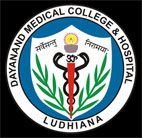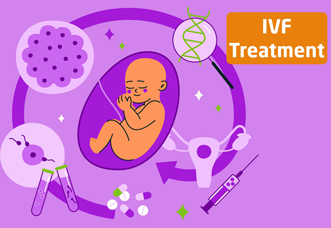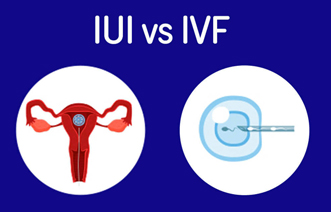Infertility is “the inability to conceive after 12 months of unprotected intercourse.” This means that a couple is not able to become pregnant after 1 year of trying. However, for women aged 35 and older, inability to conceive after 6 months is generally considered infertility.
Primary infertility refers to the inability to conceive a child after at least one year of unprotected sex, whereas secondary infertility occurs when a couple has previously conceived but is unable to conceive again after a year of trying.
As of recent updates, the incidence of infertility in India is significant, with around 10%-15% of couples facing fertility issues. Approximately 30% of cases are due to male factors, 30%-40% due to female factors, and the remaining cases are either unexplained or due to a combination of both male and female factors.
The issue is exacerbated by late marriages, demanding lifestyles ,delayed childbirth due to career oriented women, obesity, excessive consumption of fast food, smoking, drinking, and drug addiction. Excessive gymming, steroid intake and androgen injections play an important role in male infertility.
CAUSES OF FEMALE INFERTILITY
• Ovulatory dysfunction
• Tubal factors
• Endometriosis
• Lifestyle changes
• Unexplained causes
TREATMENT OF FEMALE INFERTILITY
• Lifestyle changes
• Ovulation induction
• Tubal corrective surgeries
• Uterine surgeries
• IVF procedures
CAUSES OF MALE INFERTILITY
• Endocrinological causes
• Idiopathic(10%-20%)
• Genetic causes
• Urogenital abnormalities
• Sexual dysfunction
• Environmental toxins
TREATMENT OF MALE INFERTILITY
• Lifestyle changes
•Antioxidants,clomiphene, tamoxifene
• Intrauterine insemination(IUI)
• In vitro fertilisation(IVF)
• Intracytoplasmic sperm injection(ICSI)
State of the Art world class facilities available at DMC & Hospital, Ludhiana, Punjab, India
Dayanand Medical College and Hospital has fully functional assisted reproduction unit “DMC&H INFERTILITY AND IVF CENTRE” with state of the art Embryology lab, world class latest technical support and the best trained human resources to help the couples achieve their long awaited dream of having a child.
• Work up and counselling for patients.
• Management of male factor sub-fertility.
• Management of female factor sub-fertility.
• Ovulation induction.
• Intra-uterine insemination(IUI).
• In- Vitro fertilisation(IVF).
• Laser assisted hatching.
• Embryo freezing(slow and vitrification).
• Blastocyst culture.
• Oocyte freezing.
• Egg donation.
• Donor sperm/sperm banking.
• Embryo donation.
• Cryopreservation prior to cancer treatment.
• Surgical sperm retreival for azoospermia(TESA/PESA).
• Preimplantation genetic testing(PGT).
• Preimplantation genetic screening(PGS)
SURGICAL TREATMENT FACILITIES
• Laproscopy • Hysteroscopy • Fibroid surgeries • Reversal of tubal ligation •Fertility enhancing surgeries including adhesiolysis,endometriosis, tubal surgeries. • Ultrasound guided procedures
What is IUI vs IVF? : Indications, Procedure, Comparison
INTRAUTERINE INSEMINATION
It is a procedure where the sperm is inserted directly into the uterus around the time of ovulation. It is a simple and safe procedure which treats infertility. During IUI a thin tube called a catheter is placed through vagina into the the uterus. Then the sperm are injected through the tube at the time of ovulation. This helps for the sperm and egg to unite in the fallopian tube leading to pregnancy. It is effective in cases with male factor infertility(using donor sperm), cervical factor infertility, semen allergy and unexplained infertility.
• IN VITRO FERTLISATION
It is a complex series of procedures used for the treatment of infertility . During IVF mature eggs are collected from ovaries and fertilised with sperm in lab. This is followed by placement of one or more fertilised eggs (embryo’s/blastocyst) in the uterus. It can be done using couple’s own eggs and sperm or it may involve eggs , sperm or embryos from known or unknown donor. It is most effective type of fertility treatment for couples with tubal block, ovulatory disorders , endometriosis , unexplained infertility, male factor infertility or patients with genetic disorders.
Stages of IVF
• INTRA CYTOPLASMIC SPERM INJECTION (ICSI)
It is a technique used during IVF where single sperm is injected directly into egg for the purpose of fertilisation. It is safe and effective procedure for the couple with male factor fertility and can improve the chance of fertilisation for the couple with poor fertilisation in previous IVF cycle
• TESTICULAR SPERM ASPIRATION (TESA)
TESA is a procedure performed for men who are having sperm retrieved for IVF/ICSI. It is done with local anesthesia in the operating room or office and is coordinated with their female partner’s egg retrieval. A needle is inserted in the testicle and tissue/sperm are aspirated. TESA is performed for men with obstructive azoospermia (s/p vasectomy).
• PERCUTANEOUS EPIDIDYMAL SPERM ASPIRATION (PESA)
PESA is a procedure performed for men who are having sperm retrieved for IVF/ICSI who have obstructive azoospermia from either a prior vasectomy or infection. It is done with local anesthesia in the operating room or office and is coordinated with their female partner’s egg retrieval
TESTICULAR SPERM EXTRACTION (TESE)
TESE involves making a small incision in the testis and examining the tubules for the presence of sperm. It is either done as a scheduled procedure or is coordinated with their female partner’s egg retrieval. TESE is usually performed in the operating room with sedation, but can be performed in the office with local anesthesia.MicroTESE has replaced this as the optimal form of retrieval for men with no sperm in their ejaculate (azoospermia) from a problem with production.
MICROEPIDIDYMAL SPERM ASPIRATION (MESA)
MESA is a procedure performed for men who have vasal or epididymal obstruction (s/p vasectomy, congenital bilateral absence of the vas deferens). MESA is performed in the operating room with general anesthesia. MESA allows for an extensive collection of mature sperm as compared to aspiration techniques, and it is the preferred method of retrieval for men with congenital bilateral absence of the vas deferens as it does not impact steroid production of the testis.
MICRODISSECTION TESE (MICROTESE)
MicroTESE is a procedure performed for men who have a sperm production problem and are azoospermic. MicroTESE is performed in the operating room with general anesthesia .Patients frequently have donor sperm backup in case sperm are not found in the male partner.
MicroTESE has significantly improved sperm retrieval rates in azoospermic men, and is a safer procedure since less testicular tissue is removed.
• • •
for appointment contact 9329329327
Phone : 932 932 9327, www.dmchinternationalpatients.com
 Parvasi Newspaper Punjabi Newspaper
Parvasi Newspaper Punjabi Newspaper




